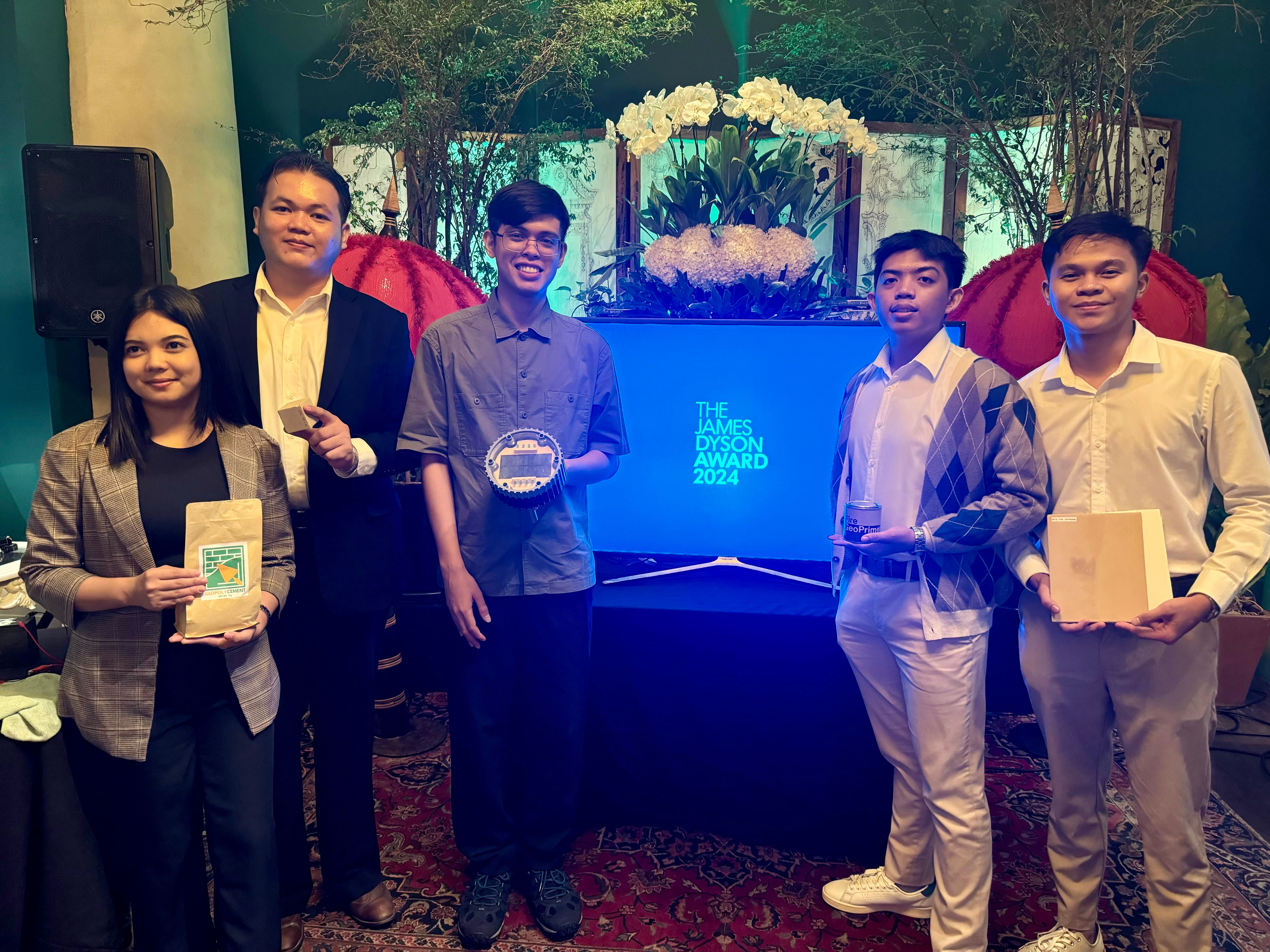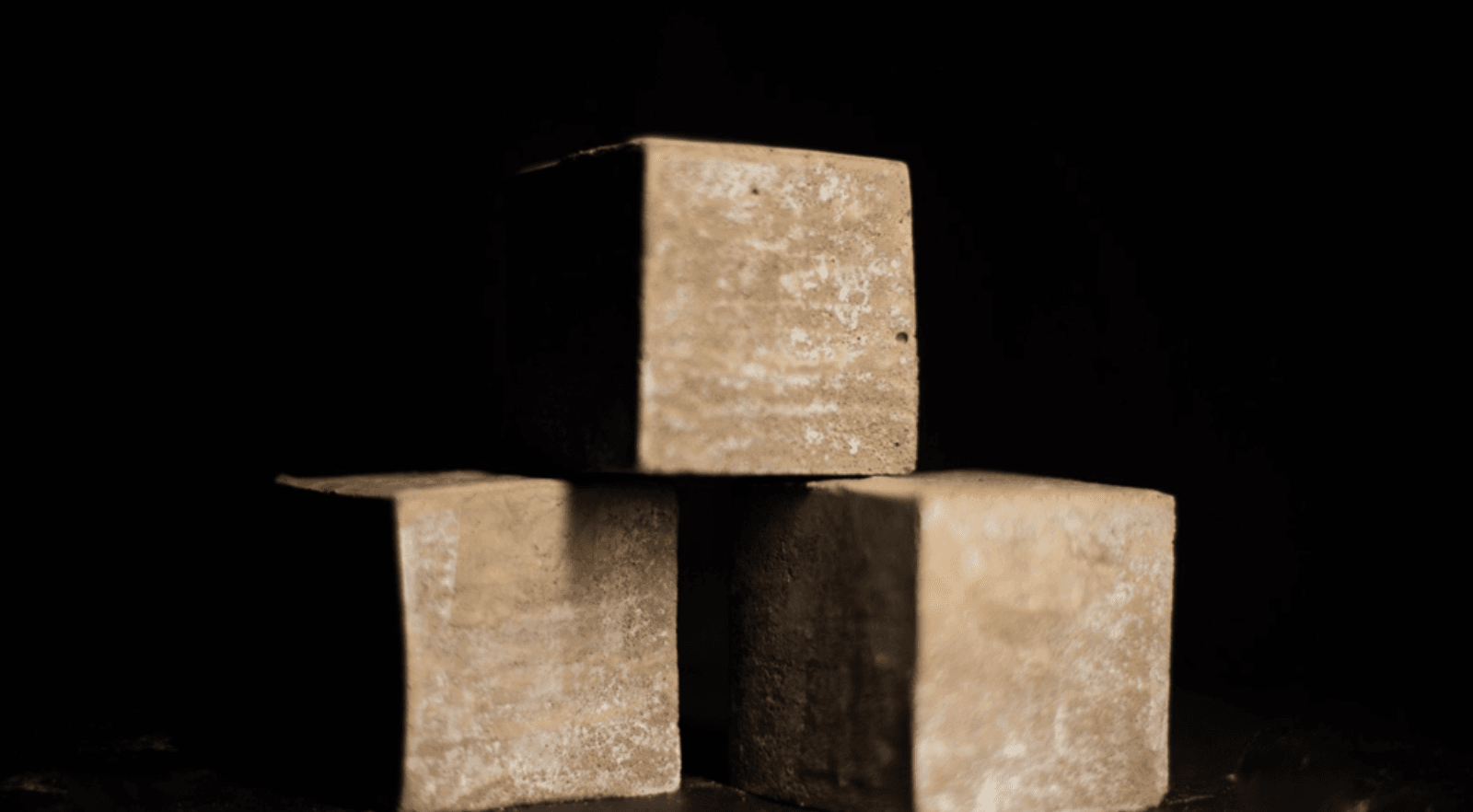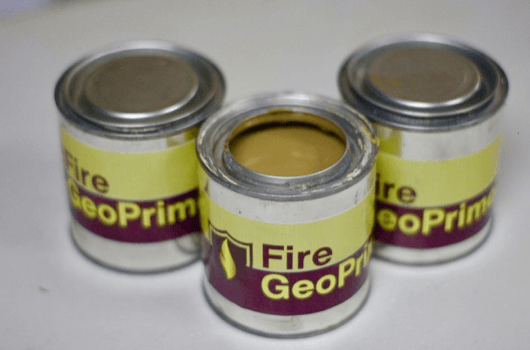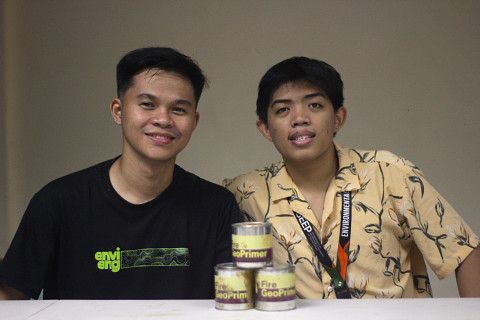James Dyson Award Philippines runners-up receive international investment offers
Inventions that address pressing issues while protecting the environment
For most competitions, runner-up positions are deemed insignificant. But for the runners-up of this year’s James Dyson Award Philippines, the future looks promising.
James Dyson Award is an international design competition that inspires and celebrates the next generation of design engineers. The award operates across 29 countries this year, and has supported over 400 problem-solving inventions. It is run by the James Dyson Foundation, Sir James Dyson’s engineering-education charity. In the Philippines, 59 entries from 16 universities across the country were submitted. In the end, projects GeopolyCement and Fire GeoPrimer won the runner-up titles.

GeopolyCement
Created by Ynna Nichole Ilogon and Rodel Jr. Remolana from Mindanao State University-Iligan Institute of Technology, GeopolyCement was developed to address the rising cement consumption by creating an eco-friendly alternative. Made from agro-industrial wastes and pozzolan materials, it is a low-carbon and more cost-effective alternative to traditional cement that provides adequate strength while addressing the issue of carbon dioxide emissions in the construction industry.
In an interview with select members of the media, Ynna and Rodel said that GeopolyCement is a good material for low-cost housing and could be a potential solution for housing materials in flood-prone areas. Since it is a lightweight foamed concrete, they are now developing a study for the possibility of floating houses made with GeopolyCement. Based on their current study, a 40 kilo bag of this cement will be P135 cheaper than regular cement if commercialized. With the project's promising potential, the team is now in the process of patenting GeopolyCement and has received an offer from Holcim, one of the world’s leading cement suppliers.

“We have consistent stakeholders meeting with industry partners, so we are also catering their inputs on what they think should be included in the properties of the cement or the formulation,” Rodel tells Manila Bulletin Lifestyle. “We are still in the process of securing a patent for the intellectual property rights of this cement. Also, we are still in the process of ruling its mechanical properties. With that we can not give [our possible partners] yet the formulation for GeopolyCement.”
Aside from Holcim, Ynna also shares that other institutions reached out to them to use this cement for storage projects. “Since it has lower thermal insulation, an industry approached us, if we could use it to build storage for goods,” she says.

When it comes to the sustainability of materials needed to make it once it becomes commercially available, the team assured that all of it is available in the Philippines and can cater to what the industry might demand.
“Availability wise, the precursors [materials] that we used are locally available and are abundant in the Philippines,” Rodel explains.
Apart from bagging the runner up title in this year’s James Dyson Award, this project is also one of the 2023 BPI (Bank of the Philippine Islands)-DOST (Department of Science and Technology) Innovation Best Innovation Project of the Year Award recipients.

Fire GeoPrimer
Hoping to prevent the high incident rate of fire-related cases in the Philippines and to help address the environmental issue of solid waste, particularly agro-industrial waste, King Zhytt Drizz and Alonzo Gabriel Limocon, created Fire GeoPrimer. These two students are also from Mindanao State University-Iligan Institute of Technology.
Fire GeoPrimer is a geopolymeric intumescent flame retardant primer coating for wood application. It uses nano silica synthesized from agro-industrial waste and aluminum from clay to enhance fire performance, providing better fire resistance and protection for wooden structures.
According to Zhytt and Alonzo, this coating is unique since it uses waste-derived nanosilica. It also offers superior fire resistance, adhesion, and thermal stability compared to commercial products. It is more affordable, making it accessible for wider use. Based on the team’s current price estimation, a liter of Fire GeoPrimer only costs P87, which is much cheaper than what’s currently available in the market, reaching up to P6,891 per liter.

Even before competing in the international leg of James Dyson Award, Fire GeoPrimer, already received investment offers from global companies. “We were surprised when we received calls from a German company and another one from a European company,” the team tells Manila Bulletin Lifestyle. “We are still working on the patent of GeoPrimer and while doing that, we’re also working to further improve it.”
When asked how they felt that international companies were the first to show interest in investing with them, Zhytt and Alonzo openly admitted that they were disheartened that the trust didn’t come from local investors.
“It's unfortunate, because what we need as innovators or the young minds the most is support, right?,” Alonzo says. “And it's sad that we got it from other countries rather than our own, but it's okay.”
Meanwhile, Valery Chong, Dyson project associated explained that investors across the globe are always looking out for potential projects, especially the innovations that come from James Dyson Award’s website. Thus, it might be possible that when the project is posted, companies will reach out to the students. She also said that most projects submitted to James Dyson Award, not just in the Philippines but across the globe, have become commercial products.
Both teams are excited to develop their projects further and hope to make them soon available commercially for the benefit of many people and the environment.